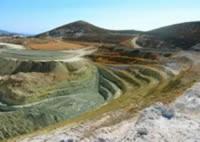Take a walk on the Wild side . . .
Strong public opinion against mining Xolobeni
 2 Recent print articles, which only appeared in the Daily Dispatch Online today, have already been published in the Weekend Post and on other environmental sites; proving conclusively that public perception is strongly against the mining:</i>
2 Recent print articles, which only appeared in the Daily Dispatch Online today, have already been published in the Weekend Post and on other environmental sites; proving conclusively that public perception is strongly against the mining:</i>
The stories have been published at
http://www.weekendpost.co.za/article.aspx?id=527361
http://saweatherobserver.blogspot.com/2010/02/another-environmental-disa...
and
http://www.savingwater.co.za/2010/02/04/heavy-minerals-mining-in-environ...
and are also reproduced in full below:
<b><a href="http://www.dispatch.co.za/article.aspx?id=377955" target="_blank"Dune mining permit ‘should be withdrawn’</a></b>
<img alt="" src="/files/images/opencast.img_assist_custom-200x142.jpg" style="width: 200px; height: 142px;">
<i>2010/02/04</i>
THE granting of a mining licence to Australian mining group Transworld Energy Minerals (TEM) to mine heavy minerals on the pristine dunes at Xolobeni on the Wild Coast was “clearly improper and ought to be withdrawn”.
...
<!--break-->
This is according to the Legal Resources Centre, acting for the AmaDiba Trust comprising members of the affected communities at Xolobeni.
The appeal documents claim that the Minerals and Energy Department failed to co-operate with other departments as required, blatantly ignored objections to the proposed mining project and failed entirely to implement its own statutory requirements for the issuing of mining licences.
The community is appealing against the Department of Minerals and Energy’s decision to grant TEM the mining licence.
The LRC, on behalf of the trust, will make oral submissions to the Minerals and Mining Development Board sitting in Durban early next week.
The LRC says that the mining right should never have been granted because:
l The Xolobeni area is part of a protected marine area and mining required the written permission of the minister, the provincial MEC and the minister of the Department of Environmental Affairs and Tourism (DEAT). Such written permission was never provided. In fact the department had completely ignored serious objections and concerns raised by the DEAT, including its concern that mining could negatively affect the adjacent Mkambati Nature Reserve.
l The mining will, as a matter of fact, cause unacceptable pollution, environmental degradation and damage to the environment.
l No community resolution was passed authorising mining activities on the land.
l The public consultation process undertaken by TEM was a “sham” and not in line with statutory requirements.
l The environmental impact assessment undertaken by TEM was severely deficient in that it had failed to provide key environmental reports, including baseline reports, had failed to consider and assess alternative land uses, and had not assessed cumulative impacts.
TEM’s application to mine the area had also been fatally flawed. For instance, the group had never provided proof of its technical and financial ability to mitigate and rehabilitate relevant environmental impacts. TEM had even ignored requests from the Minerals and Energy Department itself for required information, including a detailed mining plan setting out the mine design and proposed infrastructure, water reticulation plans to manage environmental degradation and rehabilitation plans. - By ADRIENNE CARLISLE
<b><a href="http://www.dispatch.co.za/article.aspx?id=377956" target="_blank">Area would not recover, says expert</a></b>
<i>2010/02/04</i>
THE proposed heavy minerals mining project at Xolobeni on the Wild Coast was located in one of the “most environmentally sensitive habitats” ever investigated for mining in the country, says soil fertility expert Jan Meyer.
In a report submitted as evidence in the pending appeal against the granting of a mining licence to Australian group Transworld Energy Minerals, Meyer describes the area as the “Pondoland Centre of Endemism”, a “floristic rich” environment with nine regional vegetation units between the Mzamba and Mtentu estuaries.
Meyer points out that in a number of countries, including Australia, heavy mineral mining operations on sand dunes had been closed because of the “severe and permanent” environmental impact.
He said mining authorities generally accepted that they could not restore areas to their pre-mining conditions. “They are unable to reconstruct the complex soil structures and water table level variations and the many plant associations that depend on these factors.”
The processes involved in mining had a high risk of disrupting the natural environment and causing “adverse impacts on biota and habitat”.
The contamination of surrounding wetlands and rivers could also be expected.
Independent environment specialist Simon Bundy says in his report that because of the “catastrophic disturbances” likely to be encountered as a result of the proposed mining of the dunes, the impact would “exceed the ability” of the habitat to recover. — DDR
Total views: 8,182 |

Comments
Add new comment